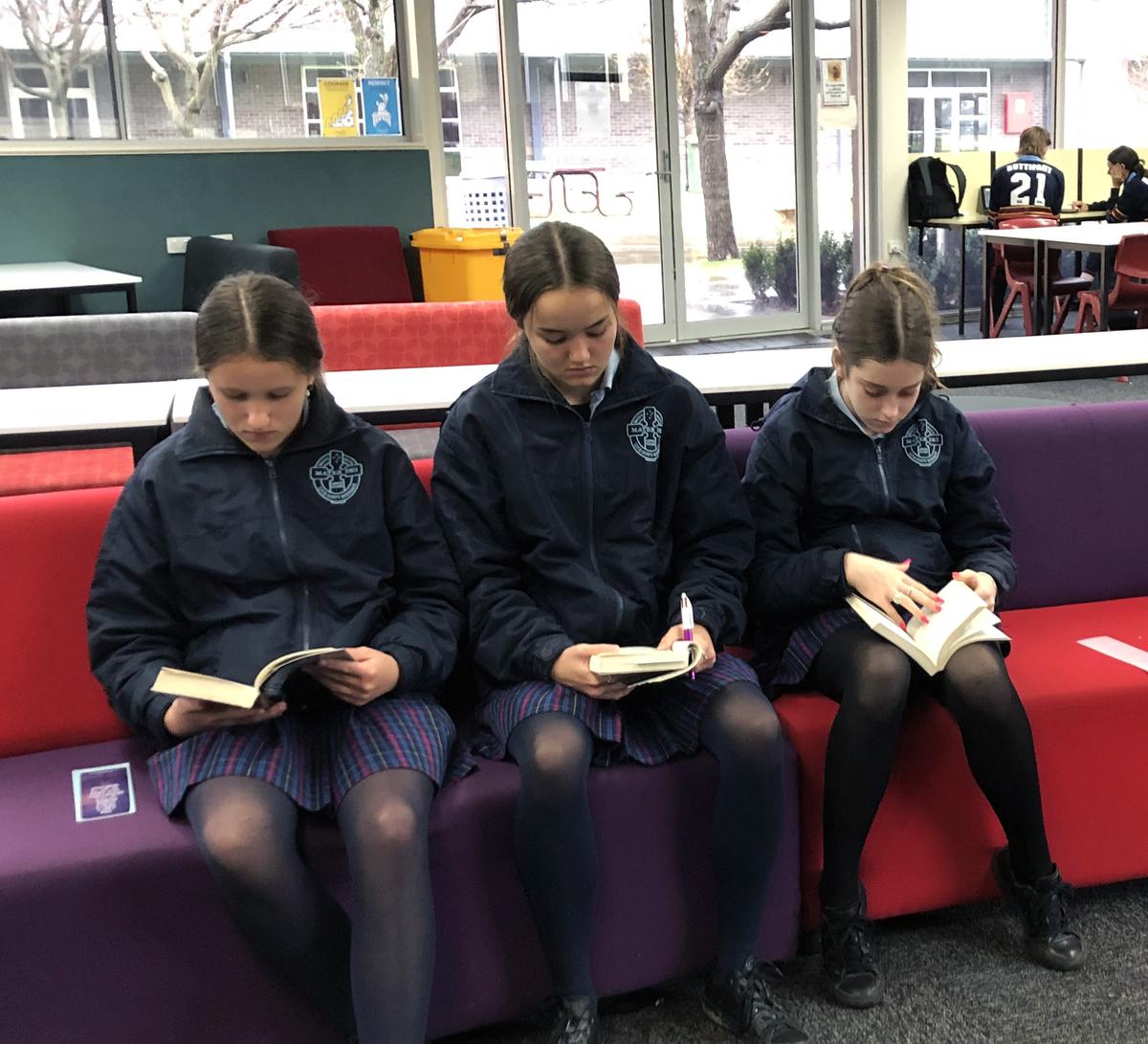English

SELF - REGULATING READING COMPREHENSION
Success in reading is central to students’ success in school and life (Chall, 1996; Snow, 2002, as cited in McMaster et al., 2015). While there has been a considerable amount of research about successful strategy instruction for reading, much of it has been focused on identifying single strategies, often in very controlled environments (Guthrie, et al., as cited in Sporer et al., 2008).
Even less of this research exists about students’ ability to analyse how texts communicate, a necessary set of skills for critical reading in the contemporary world. One method of teaching students to plan, monitor and evaluate multiple strategies for learning is the principle of self-regulated learning (Zimmerman, 1998). Self-regulation relies on knowing appropriate strategies to perform a task and metacognitively selecting and managing these strategies for effective task performance (McCombs & Marzano, 1990).
In English at Mater Dei, students are taught strategies for effective reading comprehension. Part of self-regulating their reading is to select appropriate strategies for specific contexts, then monitor and evaluate the success of those strategies.
For students in Years 8, 9 and 10, this is practised consistently through our reading program. Classes are allocated half an hour per fortnight to read, monitor and evaluate. In these lessons, students should set targets for their home reading and can select texts from the reading lists available for each cohort.
Students are then required to self-regulate by reading at home, monitoring their comprehension and evaluating the success of their strategies. When taken up diligently, the reading program can see considerable growth in students’ comprehension and confidence.
Mr Shaun Ellis | English KLA Leader
References:
Mccombs, B.L & Marzano, R.J (1990) ‘Putting the Self in Self-Regulated Learning: The Self as Agent in Integrating Will and Skill’. Educational Psychologist 25(1) pp. 51-69.
Mcmaster, K.L., van den Broek, P., Espin, C.A., Pinto, V., Janda, B., Lam, E., Hsu, H-C., Jung, P-G., Leinen, A.B., & van Boekel, M. (2015) ‘Developing a Reading Comprehension Intervention: Translating Cognitive Theory to Educational Practice’. Contemporary Educational Psychology 40 pp. 28-40.
Sporer, N., Brunstein, J.C., & Kieschke, U. (2009)’Improving Students’ Reading Comprehension Skills: Effects of Strategy Instruction and Reciprocal Teaching’. Learning and Instruction 19 pp. 272-286.
Zimmerman, B.J., (1998) ‘Developing Self-Fulfilling Cycles of Academic Regulation: An Analysis of Exemplary Instructional Models’ In D. H. Schunk & B. J. Zimmerman (Eds.), Self-regulated learning: From teaching to self-reflective practice (p. 1–19). Guilford Publications, New York.


